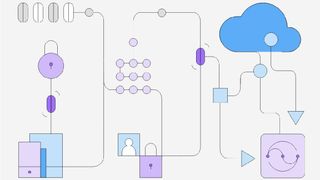IBM
Latest about IBM

The business value of aligning cost optimization, observability, and automation
By ITPro published
whitepaper Reduce the cost and complexity of managing hybrid applications

Voice of the customer for enterprise conversational AI platforms
By ITPro published
whitepaper Covering the leading service providers in enterprise supply chain innovation

Supply chain services, 2023
By ITPro published
whitepaper Covering the leading service providers in enterprise supply chain innovation

Navigating composable ERP
By ITPro published
webinar Discover what composable ERP means and how you can leverage it

Maximize the value of hybrid cloud in the generative AI era
By ITPro published
webinar Unlock the full value of hybrid cloud and harness the power of generative AI

Driving business innovation through application modernization and hybrid cloud
By ITPro published
webinar Transform with IBM Z

The enterprise guide to IT automation
By ITPro published
whitepaper IBM leaders offer an in-depth look at AI-powered IT Automation

Transforming the aftermarket supply chain
By ITPro published
whitepaper with IBM’s cognitive enterprise business platform for Oracle Cloud and generative AI
Get the ITPro. daily newsletter
Receive our latest news, industry updates, featured resources and more. Sign up today to receive our FREE report on AI cyber crime & security - newly updated for 2024.





